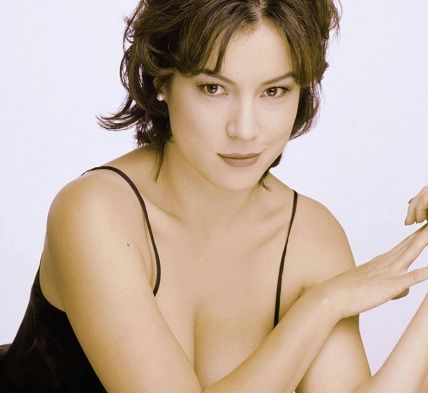Jennifer Beals has become synonymous with both beauty and talent, captivating audiences since the early 1980s. Best known for her breakout role in the iconic film Flashdance, Beals has maintained a diverse and compelling career in film, television, and theater over the past four decades. Not only is she a cultural icon, but she is also an advocate for numerous causes, making her a significant figure in both entertainment and activism. In this article, we explore Jennifer Beals’s biography, her journey to stardom, and her ongoing influence.
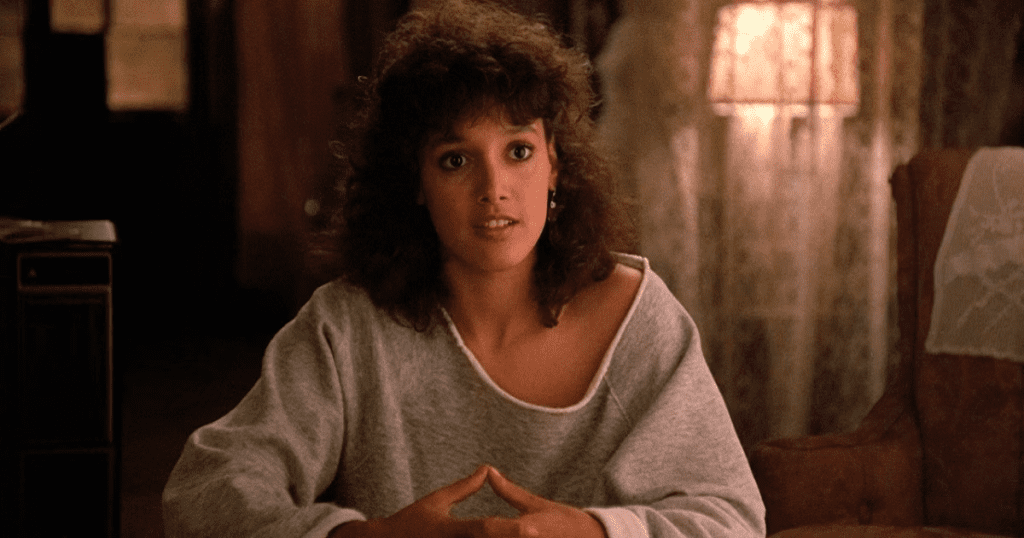
Jennifer Beals was born on December 19, 1963, in Chicago, Illinois, to an African-American father, Alfred Beals, and an Irish-American mother, Jeanne Anderson. Growing up in a working-class household, she learned the values of hard work and perseverance early on. Tragically, her father passed away when she was just nine years old, and her mother remarried Edward Cohen, who played a pivotal role in her upbringing.
Beals attended the prestigious Francis W. Parker School in Chicago, where she excelled academically and developed a deep interest in the arts. As a biracial child, she experienced the complexities of race and identity firsthand, shaping her later activism and her choice of roles as an actress. Despite these challenges, her determination to pursue her passion for acting remained unwavering.
Jennifer Beals’s life took a dramatic turn in 1983 when she starred in the iconic dance film Flashdance. At just 18 years old, she portrayed Alex Owens, a welder by day and an exotic dancer by night, who dreams of becoming a professional ballet dancer. This role, combining physicality, emotion, and charisma, catapulted her into stardom. The film grossed over $200 million worldwide and became a cultural phenomenon.
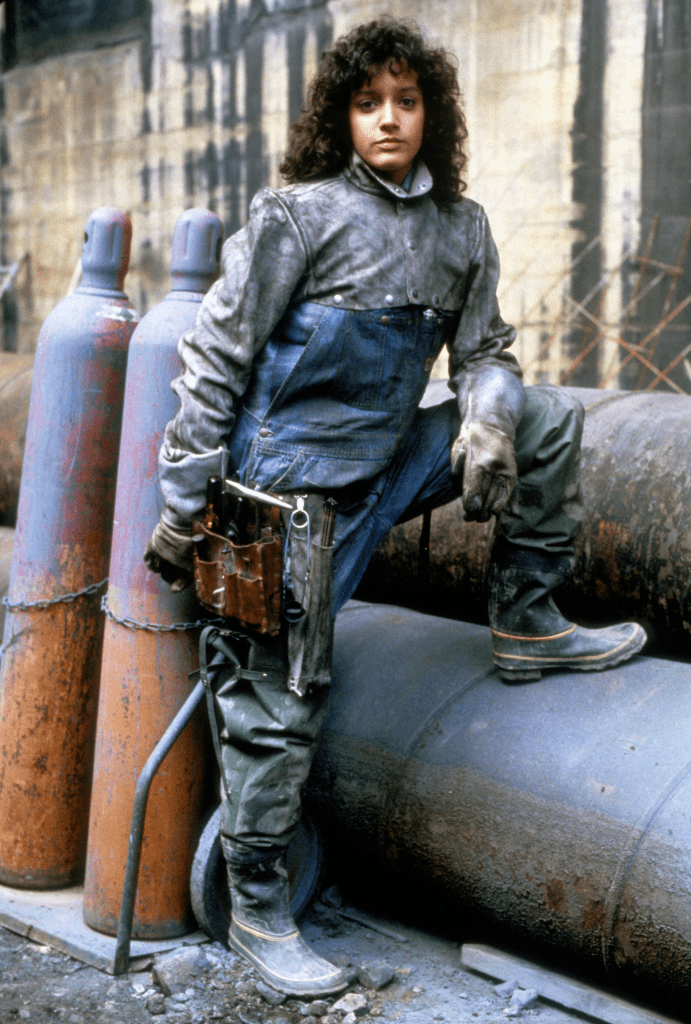
Flashdance not only achieved commercial success but also set stylistic trends. From Alex’s legwarmers to her off-the-shoulder sweatshirts, Beals’s character became a fashion icon, influencing popular culture in ways few films had before. Her performance earned her a Golden Globe nomination for Best Actress, and even though she used a body double for some dance scenes, Beals brought authenticity and heart to the role. This breakout performance would define her career while she sought to avoid being typecast.
Despite her rapid rise to fame, Jennifer Beals prioritized her education. Instead of diving headfirst into Hollywood, she enrolled at Yale University, majoring in American Literature. This decision showcased her grounded nature and commitment to intellectual growth. While at Yale, Beals balanced her studies with acting roles, demonstrating her dedication both to her craft and her education.
Her academic achievements distinguished her from many of her Hollywood peers, allowing her to step back from the spotlight and return to acting on her own terms. This period of growth set the foundation for her diverse career.
After Flashdance, Beals was intentional about her film choices, aiming to avoid being pigeonholed as the “dance girl.” Throughout the late 1980s and 1990s, she took on a variety of roles that showcased her range as an actress. Films like The Bride (1985) and Vampire’s Kiss (1988) allowed her to explore different genres, while her performance in In the Soup (1992) highlighted her affinity for independent cinema.

One of her more critically acclaimed performances came in the 1995 film Devil in a Blue Dress, where she starred alongside Denzel Washington. Her portrayal of Daphne Monet, a woman with a complex racial identity, was praised for its subtlety and depth, allowing Beals to navigate difficult themes of identity and race.
However, it was her transition to television that marked a significant turning point. In 2004, she took on the iconic role of Bette Porter in the groundbreaking series The L Word. This show, which focused on the lives of a group of lesbian friends in Los Angeles, became a cultural touchstone for LGBTQ+ representation in media. Beals’s portrayal of Bette, a powerful yet vulnerable art gallery director, won her critical acclaim and established her as a beloved figure in the LGBTQ+ community.
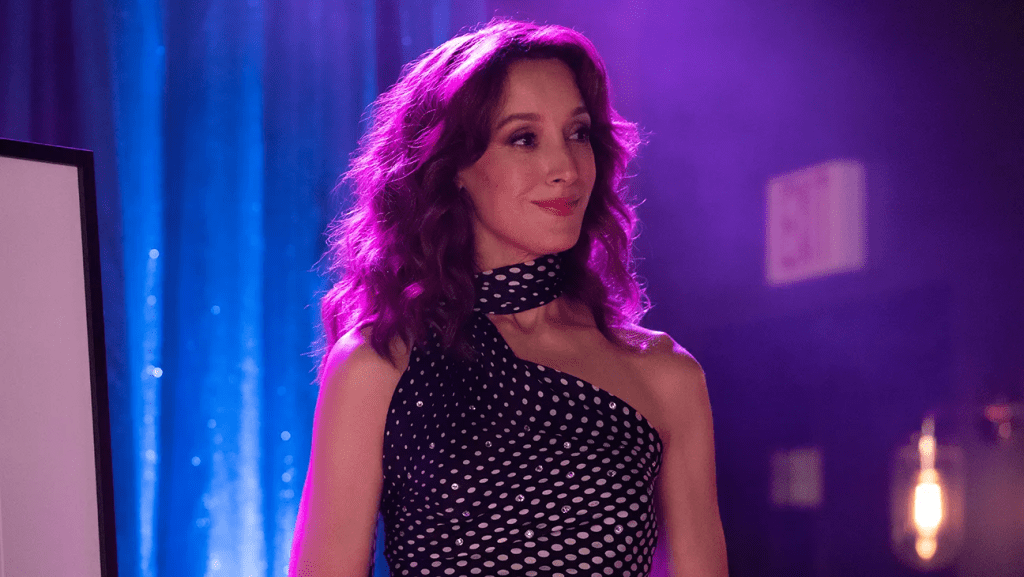
Jennifer Beals’s impact extends beyond her work on-screen. She has long been an advocate for women’s rights, racial equality, and LGBTQ+ causes. Her biracial heritage gives her a unique perspective on the struggles of marginalized communities, and she has used her platform to speak out against discrimination and inequality. Throughout her career, Beals has consistently supported projects that promote inclusivity and representation, both in front of and behind the camera.
Additionally, Beals is a vocal supporter of environmental causes, leveraging her influence to promote sustainable living and conservation. Her activism extends to her social media presence, where she engages with fans on various issues, from politics to mental health.
In recent years, Jennifer Beals’s career has continued to thrive, with roles that challenge her creatively while maintaining her commitment to meaningful social impact. In 2019, she reprised her role as Bette Porter in The L Word: Generation Q, a reboot of the original series. This iteration explores modern LGBTQ+ life, with Beals’s character now running for mayor of Los Angeles. The series has been praised for its reflection of contemporary social issues, and Beals’s performance has been lauded for its maturity and depth.
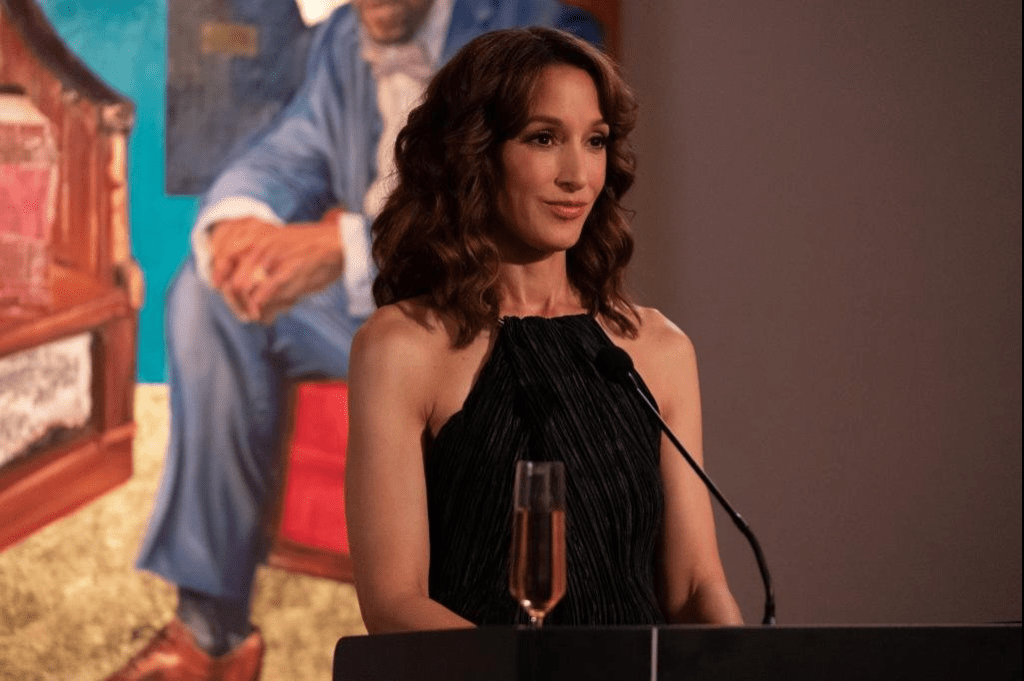
Beyond The L Word, Beals has taken on roles in various television projects, including Swamp Thing (2019) and the critically acclaimed medical drama The Night Shift. These opportunities have allowed her to expand her range as an actress while contributing to high-quality, diverse storytelling.
Jennifer Beals keeps her personal life relatively private. She has been married twice, first to filmmaker Alexandre Rockwell in 1986, and later to Ken Dixon, a Canadian entrepreneur, in 1998. The couple has one daughter, born in 2005. Despite the challenges of fame, Beals has maintained a healthy balance between her professional and personal life, often citing family and intellectual pursuits as grounding forces.
Her legacy extends far beyond her roles on screen. Beals has become a symbol of resilience and strength, not just for her iconic characters but for her unwavering dedication to social justice and equality. As a biracial woman navigating Hollywood, she has consistently broken barriers, challenging the industry to embrace diversity and representation.

Jennifer Beals’s career and life reflect a balance of intellect, talent, and compassion. From her early days in Flashdance to her continued success in The L Word: Generation Q and beyond, Beals has proven herself to be a versatile and powerful presence in Hollywood. Her advocacy for LGBTQ+ rights, racial equality, and environmental causes ensures that her influence extends far beyond the screen, making her not only a celebrated actress but also a beacon of activism and change. As we look to the future, it is clear that Jennifer Beals’s legacy will continue to inspire generations of actors, artists, and activists.


